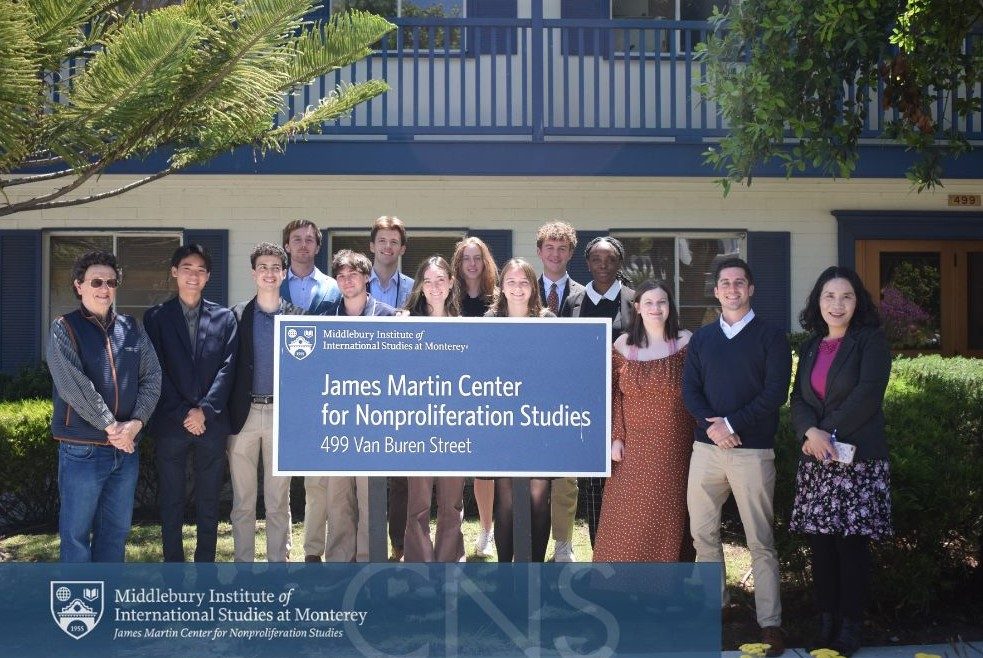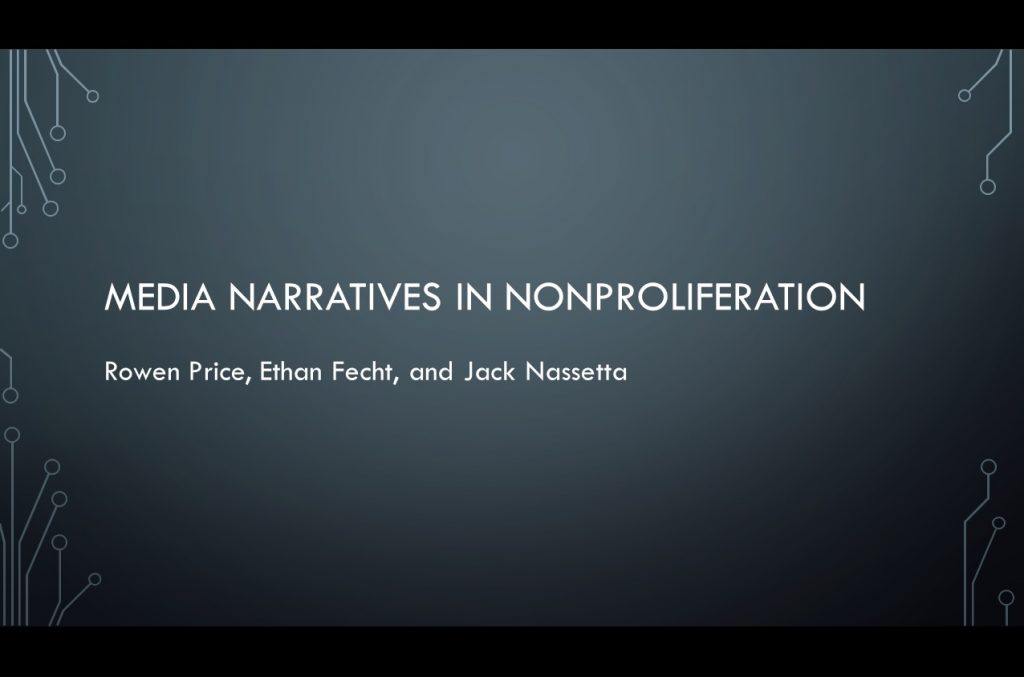For more than a decade, Sarah and Tom Pattison have been stalwart supporters and friends of the James Martin Center for Nonproliferation Studies (CNS) at the Middlebury Institute of International Studies at Monterey (MIIS). They are the major supporters of the Summer Undergraduate Nonproliferation Program. CNS has been fortunate to have such dedicated friends who value and understand the importance of nonproliferation and disarmament education to the goal of peace and security in a world free of nuclear weapons.
Since 2015, one of the highlights of the annual Summer Internship Program is when the interns present their research at a luncheon event with the Pattisons, CNS experts, relevant MIIS faculty and staff members, and other friends. This year, Tom and Sarah visited CNS to meet with the summer interns on July 27.
With a personal commitment to nonproliferation and a more secure and peaceful world, Tom and Sarah established the Tom and Sarah Pattison Fund a decade ago in support of the CNS mission. Their generosity bolsters CNS activities related to efforts to achieve a WMD-free zone in the Middle East as well as the training of young scholars and fellows in the nonproliferation field. In this way, CNS’s unique Summer Undergraduate Nonproliferation Internship Program aligns with the purpose of the Fund.
At the luncheon, thirteen top-level undergraduate interns presented the key findings of their research projects. This year’s group is a diverse set of undergraduate students from a variety of backgrounds and specializations. The students were divided into four groups according to their research interests.
View the full report on the CNS website or view their presentations below.
2018 Interns’ Research Presentations to Tom and Sarah Pattison
Interns Rowen Price, Ethan Fecht, and Jack Nassetta presented two sets of research projects on ‘Media narratives in nonproliferation’. Price presented on Chinese media narratives on nuclear issues. Fecht and Nassetta presented their findings on an analysis of the social media conversations surrounding coercive nonproliferation in Syria.
Ariel Du Temple, Yun Zhang, and Caroline Gustavson presented on the topic of ‘Analyzing CBRN capabilities using open source data’. Du Temple and Zhang showed how climate changes affect the patterns of anthrax outbreaks, while Gustavson gave an analysis on the Houthis Rebels and Al-Qaida’s radiological weapons capabilities and intentions.
Kenshin Cho, Claudia Deitch, Megan Gillahan, and Christine Roberts examined the topic of ‘How nuclear government think: National strategies, policies, and behavior’. They covered unique nonproliferation topics of different regions, countries, including South Africa’s nuclear program and apartheid regime, India and Pakistan’s Crisis behavior, US export controls in a protectionist world, and research on the 1950s soviet Radiological Weapons program.
Masao Dahlgren, Jenna Mazza, and Octave Lepinard gave their findings on the topic of ‘New technology: Geospatial and countermeasure intelligence’. Their work focused on CNS’ satellite imagery project titled Geo4nonpro (http://geo4nonpro.org), and analysis on the effectiveness of missile defense. Their presentation was based on research that has yet to be published. Due to this, their presentation will not be posted publicly.






